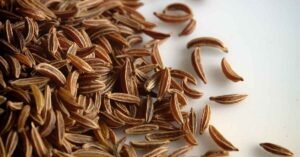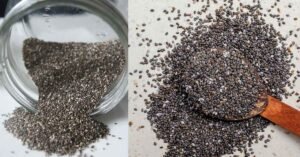
Best Kids Probiotic choices can make a significant difference in supporting your child’s digestive health and strengthening their immune system. Probiotics are good bacteria that live in our bodies. They help keep our gut healthy. For kids, probiotics can be very helpful. They support digestion, boost the immune system, and even improve mood. But with so many options out there, choosing the right one for your child can be tough. This guide will help you understand what to look for in a kids’ probiotic and recommend some of the best options available.
Best Kids Probiotics:
Probiotics are live bacteria and yeasts that are good for health. They live in your digestive system and help keep it healthy. They can be found in foods like yogurt and kefir, and also in supplements. Choosing the best kids probiotics is a challenging task for parents. Parents can have a good guideline from this blog.
Why Do Kids Need Probiotics?
Kids can benefit from probiotics in many ways. Here are some of the top reasons why kids need it:

- Digestive Health: It helps balance the bacteria in the gut. This can prevent issues like constipation, diarrhea, and gas.
- Immune System Support: A healthy gut is linked to a strong immune system. It can help kids fight off illnesses.
- Allergy Prevention: Some studies suggest that it can help prevent allergies and eczema in kids.
- Mood and Behavior: There is growing evidence that gut health is linked to mood and behavior. Probiotics might help with anxiety and depression.
Natural Probiotic-Rich Foods for Kids:
In addition to supplements, you can also give your child natural probiotic-rich foods. Here are some good options:
- Yogurt: Look for yogurt with live and active cultures. Avoid yogurts with a lot of added sugar.
- Kefir: This is a fermented milk drink that contains more probiotics than yogurt.
- Sauerkraut: This fermented cabbage is rich in probiotics. Make sure to choose the refrigerated kind, as shelf-stable versions are often pasteurized and lose their probiotic content.
- Pickles: Naturally fermented pickles can be a good source of probiotics. Again, look for refrigerated versions without vinegar, as vinegar can kill the beneficial bacteria.
- Kimchi: This is a spicy Korean fermented vegetable dish. It may be a bit strong for some kids, but it’s packed with probiotics.
- Miso Soup: Made from fermented soybean paste, miso is a traditional Japanese soup that contains probiotics.
Herbal Probiotics for Kids:
Herbal probiotics are another way to boost your child’s gut health. These are supplements that include herbs known for their beneficial effects on digestion and the gut microbiome. Here are some herbal probiotics suitable for kids:

1. Ginger
Ginger is known for its digestive benefits. It can help reduce nausea and improve digestion. You can give your child ginger tea or find supplements that include ginger.
2. Turmeric
Turmeric contains curcumin, which has anti-inflammatory properties. This can help support a healthy gut. You can add turmeric to your child’s meals or find supplements that include turmeric.
3. Peppermint
It is often used to soothe digestive issues like gas and bloating. Peppermint tea or supplements can be a good option for kids.
4. Chamomile
It is known for its calming effects and can help with digestive issues like gas and cramps. Chamomile tea is a gentle option for children.
What to Look for in a Kids’ Probiotic:
When choosing a probiotic for your child, keep these factors in mind:
- Strains of Bacteria: Different strains of bacteria have different benefits. Look for probiotics that contain strains like Lactobacillus and Bifidobacterium, which are known to be safe and effective for kids.
- CFU Count: CFU stands for colony-forming units. This tells how many bacteria are in each dose. For kids, a probiotic with 5-10 billion CFUs is usually enough.
- Form: Probiotics come in many forms, including powders, gummies, and capsules. Choose a form that your child will take easily.
- No Additives: Look for probiotics that do not contain artificial colors, flavors, or preservatives.
Top 5 Kids Probiotics Supplements:

Here are five of the best probiotics for kids:
1. Culturelle Kids Daily Probiotic
Features:
- Contains Lactobacillus rhamnosus GG, a well-researched strain.
- 5 billion CFUs per serving.
- Available in chewable tablets and powder packets.
- No artificial flavors or colors.
Benefits:
- Helps with occasional stomach issues.
- Supports the immune system.
- Easy to take with no refrigeration needed.
2. Garden of Life Dr. Formulated Organic Kids+ Probiotic
Features:
- Contains 14 probiotic strains including Lactobacillus and Bifidobacterium.
- 5 billion CFUs per serving.
- Includes prebiotic fiber to support gut health.
- Organic and non-GMO.
Benefits:
- Supports digestive and immune health.
- Chewable tablet form, easy for kids to take.
- No added sugar or artificial ingredients.
3. Renew Life Kids Probiotic
Features:
- Contains 6 probiotic strains.
- 3 billion CFUs per serving.
- Available in gummy form.
- Gluten-free, dairy-free, and soy-free.
Benefits:
- Tasty gummy that kids will love.
- Supports gut health and regularity.
- No artificial flavors or colors.
4. Nordic Naturals Kids Nordic Flora Probiotic
Features:
- Contains Lactobacillus and Bifidobacterium strains.
- 1.5 billion CFUs per serving.
- Available in powder form.
- No artificial additives.
Benefits:
- Supports digestive and immune health.
- Easy to mix with water or juice.
- Third-party tested for purity and potency.
5. MaryRuth Organics Liquid Probiotics for Kids
Features:
- Contains 12 probiotic strains.
- 1 billion CFUs per serving.
- Liquid form, easy to add to drinks.
- Organic, non-GMO, and vegan.
Benefits:
- Supports gut health and overall wellness.
- Free from common allergens.
- No artificial ingredients or preservatives.
How to Give Probiotics to Kids:
Giving probiotics to kids can be easy with these tips:
- Start Slowly: Introduce probiotics gradually to avoid any digestive upset.
- Mix with Food or Drink: If your child doesn’t like taking pills, mix the probiotic with their favorite drink or food.
- Be Consistent: For best results, give the probiotic daily.
- Follow the Instructions: Always follow the dosage instructions on the label.
Possible Side Effects
Probiotics are generally safe for kids, but some may experience mild side effects like gas or bloating. These side effects generally go away after a few days. If your child has a serious health condition, consult a doctor before starting any new supplement.
Conclusion
Probiotics can be a great addition to your child’s health routine. They support digestion, boost the immune system, and can even improve mood. When choosing a probiotic, look for one with the right strains, CFU count, and form that your child will take easily. The probiotics listed in this guide are some of the best available and can help keep your child healthy and happy. Don’t forget to include natural and herbal probiotics in their diet for extra benefits. Always consult with your child’s healthcare provider before starting any new supplement.
Frequently Asked Questions:
1. What age can kids start taking probiotics?
Probiotics can be given to children as early as infancy, but it’s always best to consult with a pediatrician before starting any supplement. Many probiotic products are formulated specifically for different age groups, so choose one that matches your child’s age.
2. Are probiotics safe for kids?
Yes, probiotics are generally safe for kids. They are naturally found in many foods and are beneficial for digestive and immune health. However, it’s important to choose a probiotic that is specifically formulated for children and follow the recommended dosage.
3. Can probiotics help with constipation in children?
Yes, probiotics can help with constipation in children by improving the balance of gut bacteria and supporting healthy digestion. Certain strains, like Bifidobacterium, are particularly effective for this purpose.
4. How long does it take for probiotics to work in kids?
The effects of probiotics can vary depending on the child and the reason for taking them. Some children may see improvements in digestion or immune health within a few days, while for others, it might take a few weeks.
5. Can kids take probiotics every day?
Yes, it is generally safe for kids to take probiotics every day, especially if they are taking a product specifically designed for children. Daily supplementation can help maintain a healthy balance of gut bacteria.
6. Do probiotics have side effects in children?
Probiotics are usually well-tolerated by children, but some may experience mild side effects like gas or bloating, especially when first starting. These side effects are typically temporary and should resolve as the child’s body adjusts.
7. What is the best way to give probiotics to kids?
Probiotics come in various forms, including powders, gummies, chewable tablets, and liquids. The best way to give probiotics to kids is to choose a form that your child prefers and can take easily. You can also mix probiotics with food or drinks if needed.
8. Can probiotics help prevent colds in kids?
Some studies suggest that probiotics can help boost the immune system and may reduce the frequency of colds and other respiratory infections in children. However, they should not replace other preventive measures like good hygiene and a healthy diet.
9. Are natural probiotics like yogurt as effective as supplements?
Natural probiotics found in foods like yogurt can be very effective in supporting gut health, but the concentration of probiotics in food can vary. Supplements are often more consistent in delivering specific strains and doses of probiotics.
10. Should I give my child probiotics after antibiotics?
Yes, giving probiotics to your child after a course of antibiotics can be beneficial. Antibiotics can disrupt the balance of good bacteria in the gut, and probiotics can help restore this balance.















One Response